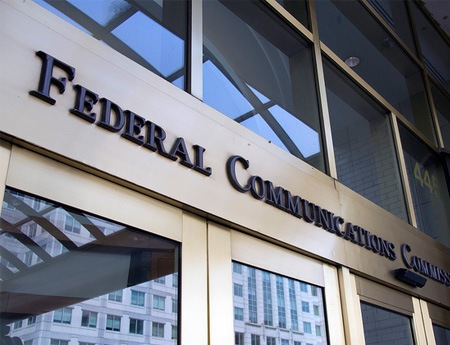NAB to FCC: Compulsory License Tied to Exclusivity Rules

The smarter way to stay on top of broadcasting and cable industry. Sign up below
You are now subscribed
Your newsletter sign-up was successful
The National Association of Broadcasters sent the legal A team to the FCC to argue that the commission should not eliminate the network nonduplication and syndicated exclusivity unless Congress first decides that cable's compulsory license had to go, too.
FCC chairman Tom Wheeler has circulated an order to the other commissioners proposing to eliminate the exclusivity rules and leave it to broadcasters to gain that exclusivity through contracts without a government backstop. The rules prevent cable operators from importing duplicative network or syndicated programming into a market. Broadcasters can still secure that exclusivity contractually.
In meetings with staffers for Republican commissioner Ajit Pai and Democrat Jessica Rosenworcel, NAB executive VP and general counsel Rick Kaplan (he dialed in to the meeting) and senior VP and deputy general counsel Erin Dozier said that exclusivity rules are a part of the bargain that led to Congress granting cable the compulsory license, that they pointed out allow cable operators to retransmit TV station programming at below-market rates.
"Cable compulsory copyright licenses were crafted in reliance on the FCC’s exclusivity rules, which serve as a critical counterbalance to the ability of cable operators to cheaply import distant signals under the license," they said. "In light of the symbiosis between compulsory copyright and the FCC’s exclusivity rules, it would be irresponsible for the Commission to repeal the rules without Congress first deciding that it no longer sought to grant the cable industry its compulsory licenses."
It is not clear whether NAB is looking to get rid of the license or to prevent the elimination of the rules given that waiting for Congress to act can be like waiting for Godot.
One former association exec who says the compulsory license should go, period, is Preston Padden. Padden is the executive director of the Expanding Opportunities for Broadcasters Coalition, but more importantly in this context, was instrumental in getting the syndicated exclusivity rules back on the books as head of the Association of Independent Television Stations back in the late 1980s. He continued to argue for eliminating the license as Disney's top man in Washington.
"The common culprit in the retrans, non-dupe and Sydnex issues is the compulsory copyright license," Padden told B&C. "Cable channels like ESPN and Discovery get Billions of dollars for cable/satellite use of their programs based on market copyright negotiations. They get exclusive rights without any obligation to negotiate with cable/satellite in 'good faith'. These cable channels don't have, or need, Retrans or FCC exclusivity rules because they have copyright. Broadcasters deserve to be paid the same way. Broadcasters need to champion repeal of the compulsory license. Otherwise they will continue to lose ground on retrans and exclusivity."
The smarter way to stay on top of broadcasting and cable industry. Sign up below
Contributing editor John Eggerton has been an editor and/or writer on media regulation, legislation and policy for over four decades, including covering the FCC, FTC, Congress, the major media trade associations, and the federal courts. In addition to Multichannel News and Broadcasting + Cable, his work has appeared in Radio World, TV Technology, TV Fax, This Week in Consumer Electronics, Variety and the Encyclopedia Britannica.

